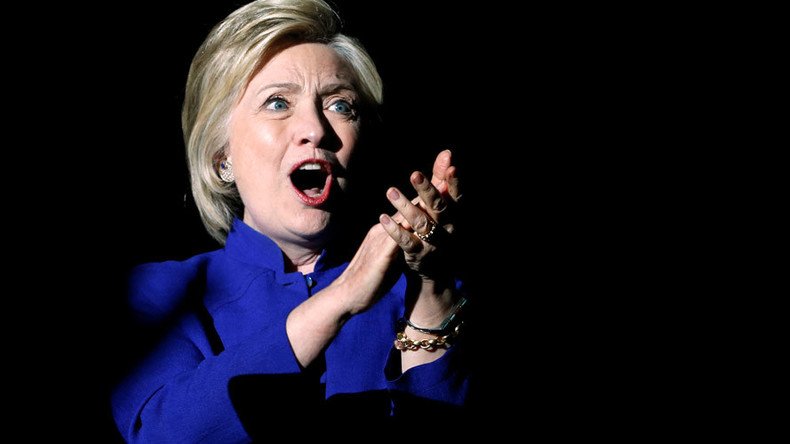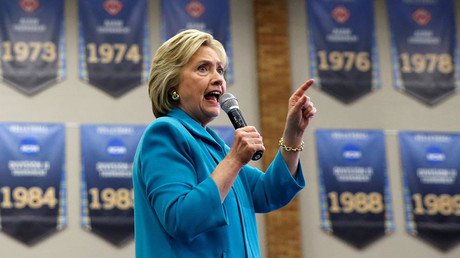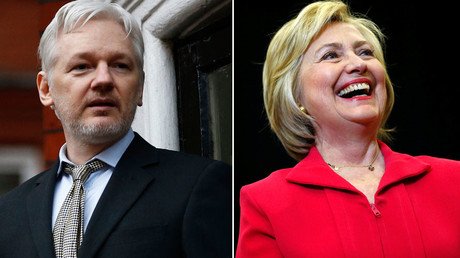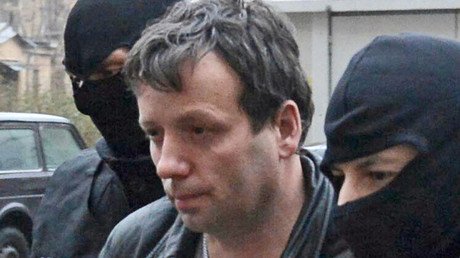FBI again asks to make secret filing in Clinton email probe

Continuing its pattern of secrecy in the probe into Democratic presidential candidate Hillary Clinton's private email server, the FBI has asked a judge for permission to file "additional details" ‒ to be shielded from the public ‒ about its investigation.
On Monday, the US Department of Justice asked US District Court Judge Randolph Moss permission to file a secret declaration, offering "additional details" about how the FBI “conducted a reasonable search for records” requested via a Freedom of Information Act (FOIA) request filed by Vice News reporter Jason Leopold. The records Leopold sought pertain to the FBI's investigation into Clinton's private email server and any classified information that entered into her private account.
A public release of records in response to the FOIA lawsuit would harm the bureau's investigation, the Justice Department said in the secret declaration, citing the FOIA exemption for an ongoing government probe.
FBI has filed another secret declaration in my #FOIA case for the contents of HRC email server hrs before primary https://t.co/R4gfAEQr5L
— Jason Leopold (@JasonLeopold) June 7, 2016
"These details supplement defendant’s showing that it conducted a reasonable search, but cannot be disclosed on the public record without compromising information that the FBI seeks to protect," the Justice Department wrote in its Monday filing.
In a separate filing on Monday, the Justice Department said it would not go into further detail about its investigation into Clinton's server beyond saying that it is based on a "security referral" from inspectors general within the intelligence community and the US State Department. Government attorneys have not described the probe as a criminal one, a designation that would justify withholding records gathered for law enforcement reasons, Leopold's attorneys have argued.
Monday's action represents the second time the Justice Department has filed a classified declaration in the case. In March, the DOJ filed a secret declaration detailing the FBI's investigation. Leopold's attorneys took issue with the secret, "ex parte" filing, arguing that the Justice Department did not ask permission from the court, as is legal protocol.
Moss accepted the first secret filing, saying he would resolve the case based on public filings and "will only rely on the ex parte filing to the extent necessary to do so."
Leopold's attorneys, Ryan James and Jeffrey Light, have argued in court filings that the FBI has not offered enough information to justify its nondisclosure of documents related to the investigation.
The FBI "should be able to identify a particular individual or a particular incident as the object of its investigation and the connection between that individual or incident and a possible security risk or violation of federal law," James and Light wrote in a motion filed last month.
"The FBI has not cited, at least in its public filings, to any 'statutes whose violation could reasonably have been thought evidenced by' Ms. Clinton's use of a private email server."
NEW: FBI cant release the to, from, dates of 2 pieces of correspondence to State re: HRC w/o compromising probe https://t.co/R4gfAEQr5L
— Jason Leopold (@JasonLeopold) June 7, 2016
The Justice Department added in its Monday declaration that, "Due to the sensitive nature of the investigation, the number of FBI personnel and involved in and having knowledge of the pending investigation is limited." The Washington Post previously reported"fewer than 50" FBI agents were working on the case.
In an audit released in late May, the State Department inspector general said that Clinton, the frontrunner for the Democratic presidential nomination, violated federal records guidelines when she refused to receive permission to conduct official State Department business on her private email.















